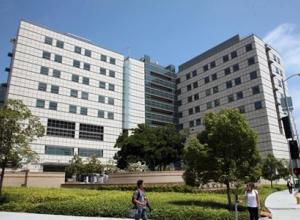Neu5Gc Sugar in Red Meat could lead to Higher Cancer Risk

The sugar specific to red meat could be behind the higher cancer risk associated with red meat. A detailed research conducted by research team at University of California San Diego School of Medicine has found a link between tumor growth among human and a sugar called Neu5Gc in red meat.
The sugar Neu5Gc can be absorbed into human tissues, according to earlier research findings. The compound leads to inflammation as it is considered a foreign molecule by the body. The body continues generating antibodies against Neu5Gc.
The research team fed the mice with Neu5Gc sugar and found systemic inflammation. The internal reaction of the body to produce antibodies against the sugar led to five times increase in the tumor formation.
Neu5GC sugar is naturally found among most of the mammals but is absent in humans. As the study team didn’t expose the mice to carcinogens or artificially induced cancers, the link between Neu5Gc due to red meat consumption and cancer became obvious.
Principal investigator Dr. Ajit Varki, professor of Medicine and Cellular and Molecular Medicine, and member of the UC-San Diego Moores Cancer Center, said, "Until now, all of our evidence linking Neu5Gc to cancer was circumstantial or indirectly predicted from somewhat artificial experimental setups. This is the first time we have directly shown that mimicking the exact situation in humans - feeding non-human Neu5Gc and inducing anti-Neu5Gc antibodies - increases spontaneous cancers in mice."
For many years, medical experts have urged people to reduce the consumption of red meat. The current study proves the link between nonhuman sialic acid N-glycolylneuraminic acid (Neu5Gc) and tumor growth. Neu5Gc is found in abundant amounts in beef, pork and lamb.
You May Also Like
- UCSF‘s New Website to educate people about severe health risks caused by sugar
- New health campaign urging parents to reduce sugar intake in their children’s diet
- Mediterranean-style diet Reduces Ischemic stroke’s Risk
- Soap Chemical may Cause Liver Tumors in Humans
- Sugar Industry Shaped Federal Research on Dental Cavities: Study



